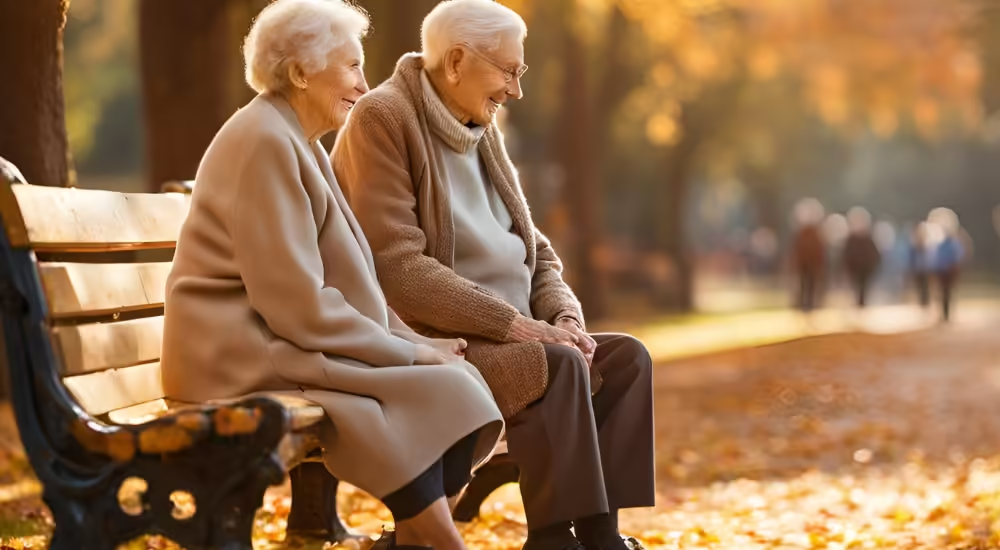International Day of Older Persons: Promoting Dignity, Inclusion, and Well-Being for the Elderly
The International Day of Older Persons, observed annually on October 1st, is a global event aimed at raising awareness about the issues facing the elderly, recognizing their valuable contributions to society, and promoting their overall well-being. This day was established by the United Nations General Assembly on December 14, 1990, and has since served as a vital platform to address key aspects of aging, including health, financial security, social inclusion, and the protection of the human rights of older individuals. As the global population continues to age, the importance of addressing the challenges and opportunities that come with this demographic shift grows significantly, calling for a collective effort to respect, support, and empower older persons.
The Historical Background and Creation of the Day
The establishment of the International Day of Older Persons emerged in response to the growing awareness of the unique needs and rights of older adults. As life expectancy increased in the latter part of the 20th century due to advancements in healthcare, nutrition, and living standards, the elderly population grew in many countries. This demographic change underscored the need to address challenges such as age discrimination, poverty, isolation, and inadequate healthcare access that often accompany aging.
The United Nations began focusing on aging as a global issue in the 1980s. In 1982, the First World Assembly on Aging, held in Vienna, led to the adoption of the Vienna International Plan of Action on Aging. This document provided recommendations for policy initiatives that would improve the quality of life for older individuals, covering topics such as health, employment, social protection, and housing.
Following this progress, the UN General Assembly designated October 1st as the International Day of Older Persons in 1990. This day was intended to draw attention to the issues facing older individuals while encouraging governments, organizations, and communities to promote the dignity and well-being of the elderly.
Why Celebrating Older Persons Is Essential
The International Day of Older Persons serves multiple important purposes, with one of the foremost being the recognition of the valuable contributions that older individuals make to society. Across many cultures, the elderly are seen as custodians of wisdom and tradition, playing a vital role in families and communities. Their experiences, amassed over decades, provide guidance and insights to younger generations. From acting as caregivers to passing down stories and cultural heritage, older people help shape societal values and norms.
Despite these contributions, the elderly are often marginalized or overlooked. Ageism, or discrimination based on age, can lead to the exclusion of older persons from social, economic, and political life. The International Day of Older Persons aims to combat ageism by challenging negative stereotypes surrounding aging. It seeks to promote a positive perspective on aging and to honor the achievements of older individuals, helping to foster a more inclusive society.
The day also serves as a call to action to address the various challenges faced by the elderly. With age, many individuals encounter health issues such as chronic illnesses and disabilities. Ensuring access to affordable healthcare, medications, and supportive services is crucial to maintaining the quality of life for older persons. Financial security is another major concern, particularly in countries where pension systems are inadequate or non-existent. The observance encourages policymakers and organizations to address these challenges and provide the necessary support for older populations.
Themes and Global Initiatives for Older Persons
Every year, the International Day of Older Persons revolves around a specific theme, which highlights a particular issue or challenge related to aging. These themes are designed to raise awareness and spark discussions among governments, civil society, and the private sector.
In recent years, themes have increasingly focused on bridging the digital divide and ensuring that older persons have access to technology. The COVID-19 pandemic, for instance, emphasized the importance of digital connectivity, as many essential services moved online. However, older individuals are often less likely to have access to digital tools or possess the skills to use them effectively. Themes like “Digital Equity for All Ages” aim to close this gap, ensuring that older individuals can benefit from technological advances.
A major initiative tied to the International Day of Older Persons is the Decade of Healthy Ageing (2021-2030), led by the World Health Organization (WHO) and backed by the United Nations. The Decade focuses on four key areas: reducing ageism, fostering age-friendly environments, providing integrated care, and ensuring access to long-term care for those who need it. These initiatives are directly linked to the United Nations’ Sustainable Development Goals (SDGs), particularly those related to health, equality, and social inclusion.
Key Challenges Facing Older Persons
Although progress has been made in improving the rights and quality of life for older persons, significant challenges persist. These difficulties vary based on factors such as geographic location, socio-economic status, gender, and more, but many older adults share similar concerns worldwide.
Health and Well-Being
Health is a top concern for older persons, as aging is often accompanied by chronic conditions like heart disease, diabetes, arthritis, and cognitive decline, such as dementia. Managing these conditions typically requires regular healthcare services and treatments, which can be expensive and challenging to access, particularly in low- and middle-income countries with limited healthcare infrastructure.
In addition, many elderly individuals experience mobility issues or difficulties performing daily activities like dressing, bathing, or eating. This often leads to a loss of independence and increased reliance on caregivers, whether family members or professional care providers. Ensuring the availability of affordable long-term care services is vital for maintaining dignity and independence among older adults.
Mental health is another critical aspect of well-being for older individuals. Conditions like depression, anxiety, and loneliness are common, especially among those who live alone or have experienced the loss of a spouse or close friends. Factors such as retirement, reduced mobility, and geographic separation from family members can contribute to social isolation, which is a major risk factor for poor mental health. The International Day of Older Persons encourages efforts to combat loneliness and isolation through community-based programs, social engagement opportunities, and mental health services.
Financial Security
Economic security is a pressing concern for many older individuals, particularly when they leave the workforce and become reliant on pensions or savings. In some countries, pension systems are inadequate, leaving many retirees vulnerable to poverty. This issue is particularly acute for women, who often have lower lifetime earnings due to wage gaps and caregiving responsibilities, leading to smaller pensions and savings.
Age discrimination in the labor market also poses challenges for older individuals who wish to continue working or re-enter the workforce. Losing income or being unable to find employment can result in financial insecurity, especially in countries without strong social safety nets. The International Day of Older Persons advocates for policies that promote financial stability for older adults, including fair pension systems, access to affordable healthcare, and opportunities for lifelong learning and employment.
Social Inclusion
Social inclusion is a crucial theme for the International Day of Older Persons. As people age, they often face exclusion from various aspects of society, whether due to physical barriers, societal attitudes, or a lack of opportunities for participation. This exclusion can lead to feelings of isolation, loneliness, and diminished self-worth.
Many older individuals want to remain active in their communities, whether through volunteering, social activities, or part-time work. However, ageism and societal norms around aging can limit these opportunities. The International Day of Older Persons emphasizes the importance of creating inclusive environments that allow older adults to fully participate in all aspects of life.
Human Rights and Protection of Older Persons
The human rights of older individuals are often at risk, and many face violations such as neglect, abuse, and exploitation. Elder abuse, including physical, emotional, financial, and sexual abuse, is a widespread issue. In many cases, this abuse comes from caregivers or family members, causing significant harm to the well-being of older persons.
In addition to abuse, older persons may experience discrimination in areas like healthcare, housing, and employment. Ageism can prevent them from accessing the services and opportunities necessary for living with dignity. The International Day of Older Persons calls for stronger measures to protect the human rights of older individuals and urges governments to prevent abuse, ensure equal treatment, and promote respect for the elderly.
Global Perspectives on Aging
The experiences of older persons vary widely across different regions, influenced by factors such as cultural context, socio-economic conditions, and local policies. While some countries have developed robust systems to support their aging populations, others are struggling to meet the needs of their elderly citizens. The International Day of Older Persons provides an opportunity to examine these regional differences and advocate for solutions tailored to local contexts.
Aging in Developed Countries
In many developed nations, aging populations have prompted significant policy changes to support older persons. These countries often have established pension systems, healthcare services, and social programs designed to meet the needs of the elderly. However, challenges remain, particularly concerning healthcare costs, long-term care availability, and social inclusion.
For instance, countries like Japan and Italy, with rapidly aging populations, face growing demand for healthcare and caregiving services. These countries have turned to technology, including robotics, to assist older individuals with daily tasks. However, the increasing reliance on technology raises questions about the importance of human interaction in caregiving.
Aging in Developing Countries
In contrast, many developing countries are experiencing a rapid increase in the elderly population without the necessary infrastructure to support them. Older individuals in these regions are often more vulnerable to poverty, inadequate healthcare, and social exclusion. Traditional family structures, which once provided care for older persons, are evolving as younger generations move to urban areas for work, leaving elderly family members behind.
In sub-Saharan Africa, for example, the impact of the HIV/AIDS epidemic has left many older persons caring for orphaned grandchildren. This added caregiving responsibility, combined with a lack of social safety nets and healthcare, places significant strain on elderly caregivers.
In Latin America, many older individuals lack access to sufficient pensions or social programs, leaving them financially insecure. The informal labor market, prevalent in many developing countries, excludes many workers from formal pension systems, worsening the financial situation for older adults.
The Role of Governments and Civil Society in Supporting Older Persons
Governments play a crucial role in ensuring the well-being of older persons by implementing policies and programs that promote financial security, healthcare access, and social inclusion. They also have the responsibility to combat ageism and protect the human rights of older individuals.
One key policy measure is the development of national aging strategies, which outline the steps governments will take to address the needs of older populations. These strategies typically cover areas such as pension reform, healthcare, long-term care services, and the creation of age-friendly environments. In addition, governments can foster lifelong learning and employment opportunities for older individuals to keep them engaged and active in society.
Civil society organizations also play an essential role in advocating for the rights of older persons and providing much-needed services. These organizations often focus on issues like elder abuse, social isolation, and healthcare access while offering older individuals platforms to voice their concerns and push for change.
Conclusion
The International Day of Older Persons is a vital observance that celebrates the contributions of older individuals while bringing attention to the challenges they face. As the global population continues to age, it is more important than ever to prioritize the well-being of older persons and address the issues that affect them. From ensuring financial security and healthcare access to combating ageism and promoting social inclusion, the day serves as a reminder of the work that needs to be done to create a world where older persons can live with dignity, respect, and full participation in society.
Stay tuned for more news…